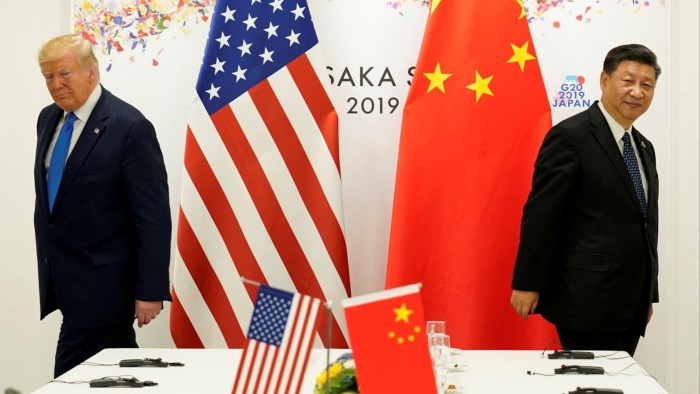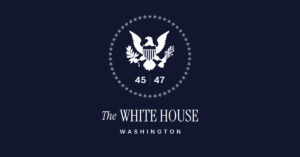
China has voiced strong opposition to the recent US-Vietnam trade deal, expressing concerns that President Donald Trump is leveraging tariff negotiations with third countries to undermine China’s export capabilities. The agreement, announced on Wednesday, reduces tariffs on Vietnamese exports from a potential 46 percent to 20 percent, while maintaining a 40 percent levy on “trans-shipping” — a move widely perceived as targeting Chinese re-exports to the United States.
The deal marks the second instance of the US targeting China since Trump announced his “liberation day” tariff increases on April 2. In a similar move, a US-UK agreement in May imposed stringent security requirements on steel and pharmaceuticals, which were interpreted as efforts to exclude China from British supply chains.
China’s commerce ministry responded on Thursday, stating it is “conducting an assessment” of the US-Vietnam trade deal, and emphasized, “We firmly oppose any party striking a deal at the expense of China’s interests.” The ministry further warned, “If such a situation arises, China will take resolute countermeasures to safeguard its legitimate rights and interests.”
Strategic Moves in a Global Trade Chess Game
This development comes as numerous countries rush to finalize trade agreements with the US before the July 9 deadline, when Trump’s suspended “reciprocal” tariffs are set to take effect. Vietnam, heavily reliant on trade, was particularly motivated to secure a deal, as the US accounts for 30 percent of its exports.
However, the final tariff terms and the additional levy on trans-shipping highlight the significant concessions Hanoi had to make. Experts suggest the deal is not solely about trade but also aims to curb the flow of Chinese goods through Vietnam to evade existing US duties.
“The new US-Vietnam deal is not just about trade; it is clearly aimed at China. It is meant to block the flow of Chinese goods that often move through Vietnam to dodge existing US duties,” said Julien Chaisse, an expert on international economic law at the City University of Hong Kong.
Implications for Southeast Asia and Beyond
Many Southeast Asian nations have benefited from the US-China trade war by providing alternative manufacturing and export hubs for Chinese companies looking to bypass US tariffs. This “China plus one” strategy has led to significant trade surpluses with the US.
However, the recent deal underscores a critical lesson for other countries: they may be expected to limit some trade with China, a move likely to provoke Beijing. This sentiment is echoed by Capital Economics’ chief Asia economist Mark Williams and senior Asia economist Gareth Leather.
“The key lesson for other countries from this deal, and that agreed previously by the UK, is that they will be expected to curtail some trade with China,” they noted. “That will be seen as a provocation in Beijing, particularly if similar conditions are included in any other deals agreed over coming days.”
Potential Ripple Effects on US-China Relations
Analysts caution that the Vietnam deal, along with others perceived by Beijing as threatening its interests, could jeopardize US-China trade negotiations. Although Trump recently claimed a tariff truce with Beijing, concerns persist over issues like Chinese restrictions on rare-earth exports and US controls on advanced technology exports.
“This could certainly lead to a renewed escalation of US-China trade tensions if the US insists on very stringent restrictions by third parties on imports from China,” said Frederic Neumann, chief Asia economist at HSBC.
Adam Sitkoff, executive director of the American Chamber of Commerce in Hanoi, viewed Vietnam’s timely agreement as a positive move, especially in light of Trump’s threats of higher tariffs on countries like Japan.
Challenges in Enforcement and Future Prospects
Key to the deal’s success will be the enforcement of the 40 percent trans-shipment levy. The Trump administration has prioritized this issue in trade talks, but the complexity of global trade and the ease with which companies can circumvent rules pose significant challenges.
“The devil lies in the details of enforcement as opposed to the agreements,” said Brian Wong, a professor at Hong Kong University, suggesting that China’s strong rhetoric is largely “performative.”
For Vietnam, uncertainties remain regarding the specifics of the deal, such as the finality of the 20 percent tariff and the scope of the 40 percent charge.
“Assessing the pros and cons of the deal is difficult without seeing further details about what the tariffs actually mean,” Sitkoff noted. “Do the 40 percent tariffs on ‘trans-shipped’ goods apply to any product that contains content from another nation? The answers to these questions can be the difference between celebrating or crying.”
As the July 9 deadline approaches, the global trade landscape continues to shift, with countries navigating the complex interplay of economic interests and diplomatic relations.







